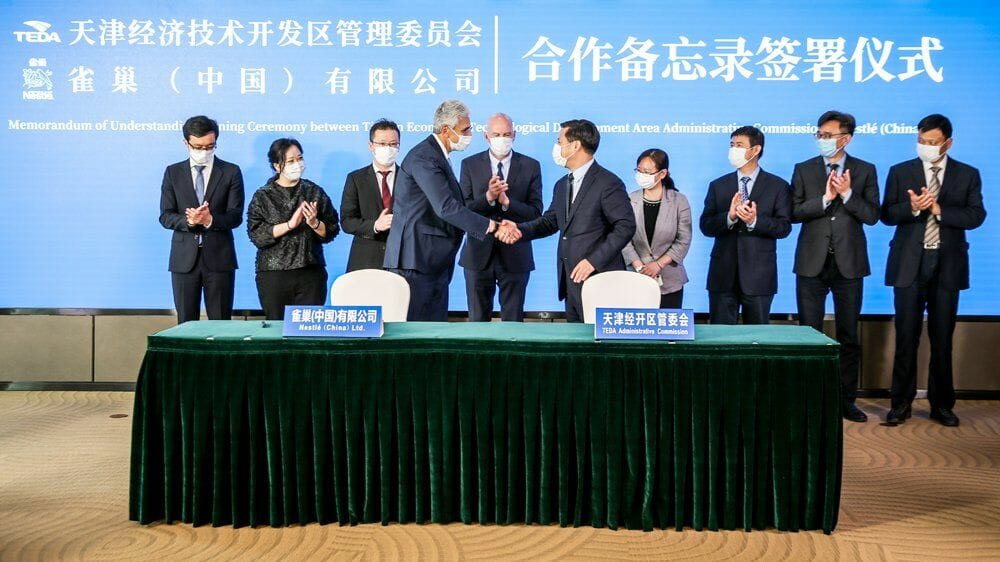Asia’s plant-based protein space seems to be growing more competitive by the day, with a multitude of startups, investors, and major food corporates announcing plays in the region.
Another giant has just thrown its hat in. Nestlé has unveiled plans to build a factory to produce plant-based meat alternatives in Tianjin, China. It’ll be the Swiss food conglomerate’s first such facility in Asia.
The announcement is part of a wider CHF 100 million ($103 million) investment that Nestlé is making in the country, which also includes an upgrade to its existing pet food production facility in Tianjin as well as the introduction of new pet food product lines.
Nestlé will also commit some of the funding to enhancing its confectionary product lines in China, as well as its quality assurance capabilities in the country.
When it comes to plant-based products, Nestlé will be up against some increasingly stiff competition as tech startups and established food manufacturers alike try to claim an early foothold in Asia’s budding alt-protein market.
US agribusiness giant Cargill recently unveiled PlantEver – its new plant-based meat analog brand which will debut in China. This followed a collaboration with Yum China, the regional operator of Kentucky Fried Chicken, which saw Cargill’s pea, soy, and wheat-derived protein sold in the form of meat-free ‘chicken’ nuggets at several of the chain’s outlets in Guangzhou, Shanghai, and Shenzhen.
Also hailing from the US, Beyond Meat partnered with Starbucks last month to sell food items containing the NASDAQ-listed company’s plant-based proteins at the coffee chain’s stores across China. Starbucks will also offer dishes containing imitation pork produced by Hong Kong’s Omnipork, as well as new dairy-free beverages using oat-based milk from Sweden’s Oatly, in some of its Chinese locations.
In March, Beyond Meat’s archrival Impossible Foods raised $500 million from big-name Asian investors including Mirae Asset and Temasek, who are expecting the startup to ramp up its expansion in the region.
Local players like ZhenMeat and Starfield – which raised funding from Beyond Meat backer Unovis and China-centric alt-protein VC fund Dao Foods in March – are also making their presence known.
According to market research consultancy Euromonitor, China’s market for ‘meat-free’ food – including plant-based meat imitations – will be worth $12 billion by 2023, increasing from $10 billion in 2018.
Nestlé says that China is its second biggest market worldwide after the US. The company has 31 production sites and seven R&D and innovation centers in the country, as well as running three local research institutes focused on food safety, dairy farming, and coffee. It says it employs close to 43,000 people in China.
Got a news tip? Email me at [email protected]





